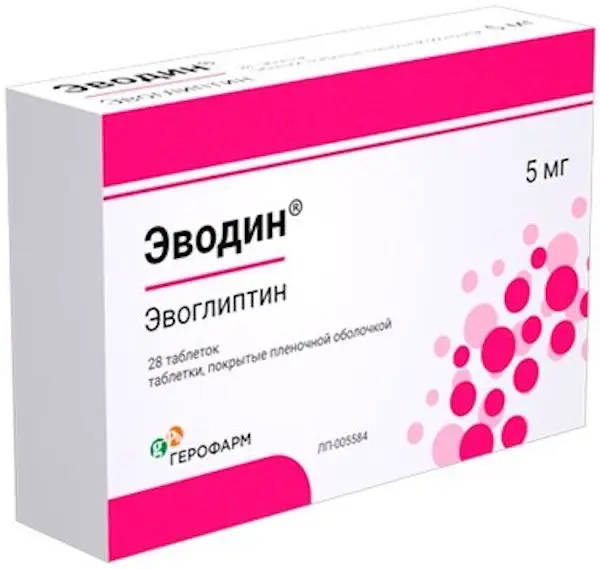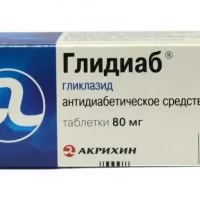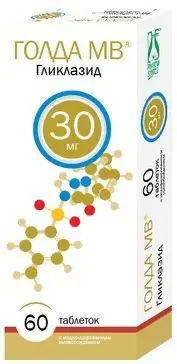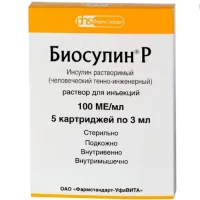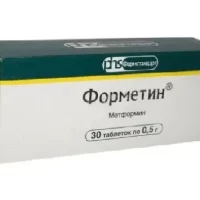Description
Evodin Pharmacodynamics
Mechanism of action
Evogliptin is active when taken orally, a selective inhibitor of serine protease, the enzyme dipeptidyl peptidase-4 (DPP-4), involved in the inactivation of the hormones (incretins): glucagon-like peptide type 1 (GFP-1) and glucose dependent insulinotropic polypeptide (GIP). Both are involved in the maintenance of glucose homeostasis. GFP-1 and GIP are secreted in the intestine, with low daily basal concentrations of the insectin increasing in response to food intake. Under physiological conditions, the activity of the hormones is limited by the enzyme DPP-4 (GFP-1 and GIP are rapidly hydrolyzed by DPP-4 to form inactive forms). At low blood glucose concentrations, incretins have no effect on insulin release and glucagon secretion. At normal or elevated blood glucose concentrations, PPP-1 and GIP increase insulin synthesis as well as insulin secretion by pancreatic cells through intracellular signaling mechanisms related to cyclic adenosine monophosphate (AMP). In addition, GFP-1 decreases glucagon secretion by pancreatic alpha cells. A decrease in glucagon concentration against the background of an increase in insulin concentration contributes to a decrease in glucose production in the liver, which in turn leads to a decrease in glycemia. Evogliptin reversibly binds to DPP-4 enzyme, preventing hydrolysis of incretins and causing a steady increase in concentration of active forms of GFP-1 and GIP.
In patients with type 2 diabetes mellitus (DM2) with hyperglycemia, changes in insulin and glucagon secretion lead to a significant decrease in plasma glycated hemoglobin (HbAlc) and glucose concentrations.
Evogliptin is associated with a lower risk of hypoglycemia compared to other oral hypoglycemic drugs of other groups. Unlike sulfonylurea derivatives and thiazolidinediones (glitazones), for which a frequent adverse reaction during therapy is an increase in body weight, taking evogliptin has no effect on the patient’s body weight.
Indications
Diabetes mellitus type 2 in addition to diet therapy and exercise to improve glycemic control as:
– monotherapy;
– Combination therapy with metformin.
Contraindications
Hypersensitivity to evogliptin and/or other DPP-4 inhibitors, and/or to any excipient of the drug.
Diabetes mellitus type 1.
Diabetic ketoacidosis.
Pregnancy and breast-feeding period.
Age under 18 years old (due to the lack of data on the efficacy and safety of Evogliptin in children and adolescents under 18 years old).
Chronic heart failure (CHF) of New York Heart Association (NYHA) functional class II-IV.
Caution:
– In patients with NYHA functional class I CHF;
– In patients with moderate to severe renal failure;
– In patients with hepatic insufficiency;
– In patients with a history of acute pancreatitis;
– In elderly patients.
Pregnancy and lactation:
The use of evogliptin during pregnancy is contraindicated. Controlled randomized trials of efficacy and safety of evogliptin in pregnant women have not been conducted. The results of animal studies have shown that evogliptin penetrates the placental barrier and is detected in fetal blood.
There are no data on the penetration of evogliptin into human breast milk. The results of preclinical studies showed that evogliptin penetrates into the milk of lactating rats. The use of evogliptin during breastfeeding is contraindicated.
Dosage and administration
- Adults .
- Orally, regardless of meals. Recommended dose of Evodin® is 5 mg once daily as monotherapy or combined therapy with metformin; maximum daily dose of Evodin® is 5 mg.
- If one or more doses are missed, the patient should immediately take the drug as soon as they remember. The drug should then be continued as usual. Do not take a double dose on the same day.
- In elderly patients.
- The use of Evogliptin in elderly patients has not been well studied. Since in elderly people, as a rule, there is a decrease in physiological functions, including liver and kidney functions, caution should be exercised when taking the drug and monitor the patient’s condition.
- Children and adolescents under 18 years of age
- The safety and efficacy of Evodin® in children and adolescents under 18 years of age has not yet been established.

